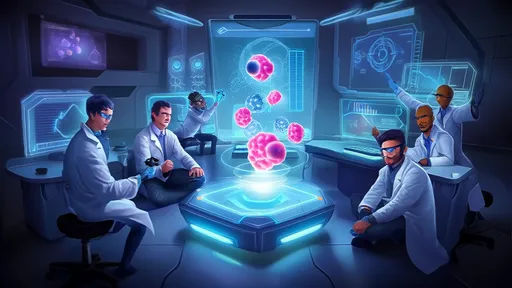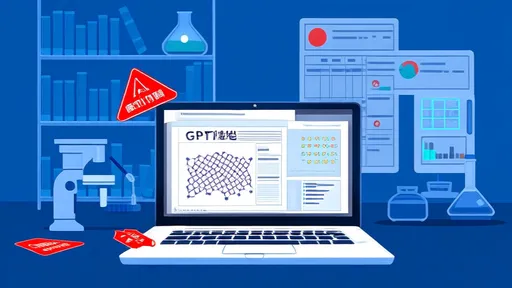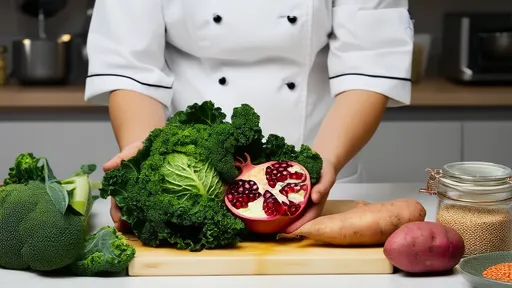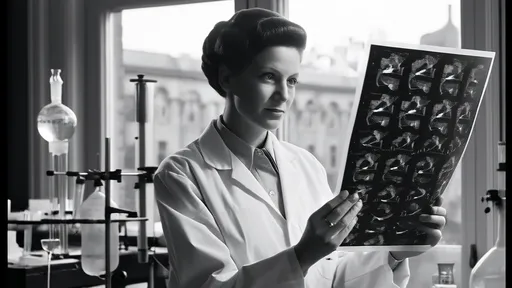The concept of personalized nutrition has taken a revolutionary leap forward with the advent of gut microbiome-based dietary plans. No longer confined to generic dietary guidelines, scientists and nutritionists are now tailoring meal plans based on an individual's unique gut flora composition. This groundbreaking approach, often referred to as precision nutrition, is transforming the way we think about food, health, and wellness.
At the heart of this innovation lies the understanding that our gut microbiome—the trillions of bacteria, viruses, and fungi residing in our digestive tract—plays a pivotal role in how we metabolize food, absorb nutrients, and even regulate mood. Research has shown that two people can respond to the same food in dramatically different ways due to variations in their gut bacteria. This discovery has paved the way for highly customized superfood recipes designed to optimize health outcomes for each individual.
The process begins with a comprehensive analysis of an individual's gut microbiota. Advanced sequencing technologies map out the bacterial species present in the gut, identifying imbalances or deficiencies that may contribute to health issues. Armed with this data, nutritionists craft a dietary plan rich in foods that promote the growth of beneficial bacteria while suppressing harmful ones. For instance, someone with a low diversity of Bifidobacteria might receive a recipe packed with prebiotic fibers like chicory root and garlic, which are known to nourish these microbes.
One of the most compelling aspects of microbiome-based nutrition is its potential to address chronic conditions. Studies have linked gut dysbiosis—an imbalance in gut bacteria—to ailments ranging from obesity and diabetes to autoimmune disorders and mental health challenges. By designing targeted superfood meals, practitioners aim to restore microbial equilibrium, thereby alleviating symptoms and improving overall health. A patient with irritable bowel syndrome (IBS), for example, might benefit from a low-FODMAP diet adjusted to their specific microbial profile, reducing bloating and discomfort.
The culinary creativity behind these super recipes is equally remarkable. Gone are the days of bland, restrictive "health foods." Today's microbiome-enhancing dishes are vibrant, flavorful, and diverse. Think fermented kimchi paired with grilled salmon for a probiotic and omega-3 boost, or a colorful bowl of roasted root vegetables drizzled with extra-virgin olive oil to support anti-inflammatory bacteria. These meals aren’t just functional—they’re designed to delight the palate while healing the gut.
Critics, however, caution that the field is still in its infancy. While the science linking gut bacteria to health is robust, translating this into universally effective dietary interventions remains complex. Factors like genetics, lifestyle, and even geographic location can influence how a person's microbiome responds to food. Moreover, the cost of microbiome testing and personalized meal planning can be prohibitive for many, raising concerns about accessibility.
Despite these challenges, the momentum behind precision nutrition is undeniable. Major food companies and startups alike are investing heavily in microbiome research, hoping to bring tailored nutrition solutions to the masses. Some envision a future where your grocery list is generated by an AI that analyzes your gut flora, or where restaurants offer menus customized to your microbial makeup. The era of one-size-fits-all diets may soon be a relic of the past.
For those eager to explore this frontier, experts recommend starting small. Incorporating a variety of fiber-rich plants, fermented foods, and polyphenol-packed ingredients like dark chocolate and berries can naturally diversify gut bacteria. Keeping a food journal to track how different meals affect energy levels, digestion, and mood can also provide valuable insights. While we may not all have access to cutting-edge microbiome testing yet, these simple steps can help anyone begin their journey toward a healthier gut—and a healthier life.
As research continues to unravel the intricate relationship between diet and the microbiome, one thing is clear: the future of nutrition is personal. By honoring the uniqueness of our inner ecosystems, we open the door to a new paradigm of eating—one where food is not just fuel, but a finely tuned instrument of healing and vitality.

By /Jul 2, 2025

By /Jul 2, 2025

By /Jul 2, 2025

By /Jul 2, 2025

By /Jul 2, 2025

By /Jul 2, 2025

By /Jul 2, 2025

By /Jul 2, 2025

By /Jul 2, 2025

By /Jul 2, 2025

By /Jul 2, 2025

By /Jul 2, 2025

By /Jul 2, 2025

By /Jul 2, 2025

By /Jul 2, 2025

By /Jul 2, 2025

By /Jul 2, 2025

By /Jul 2, 2025

By /Jul 2, 2025

By /Jul 2, 2025